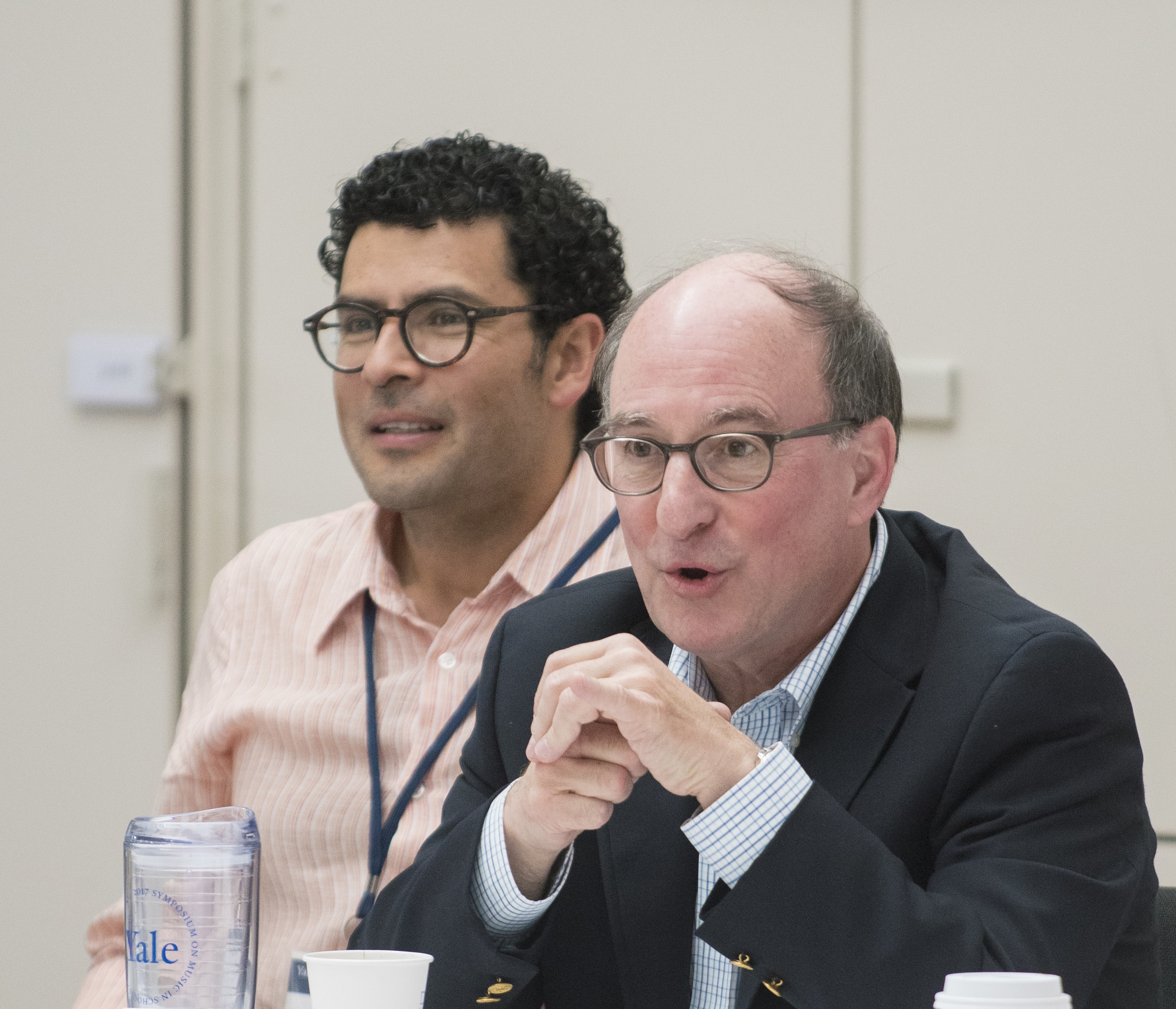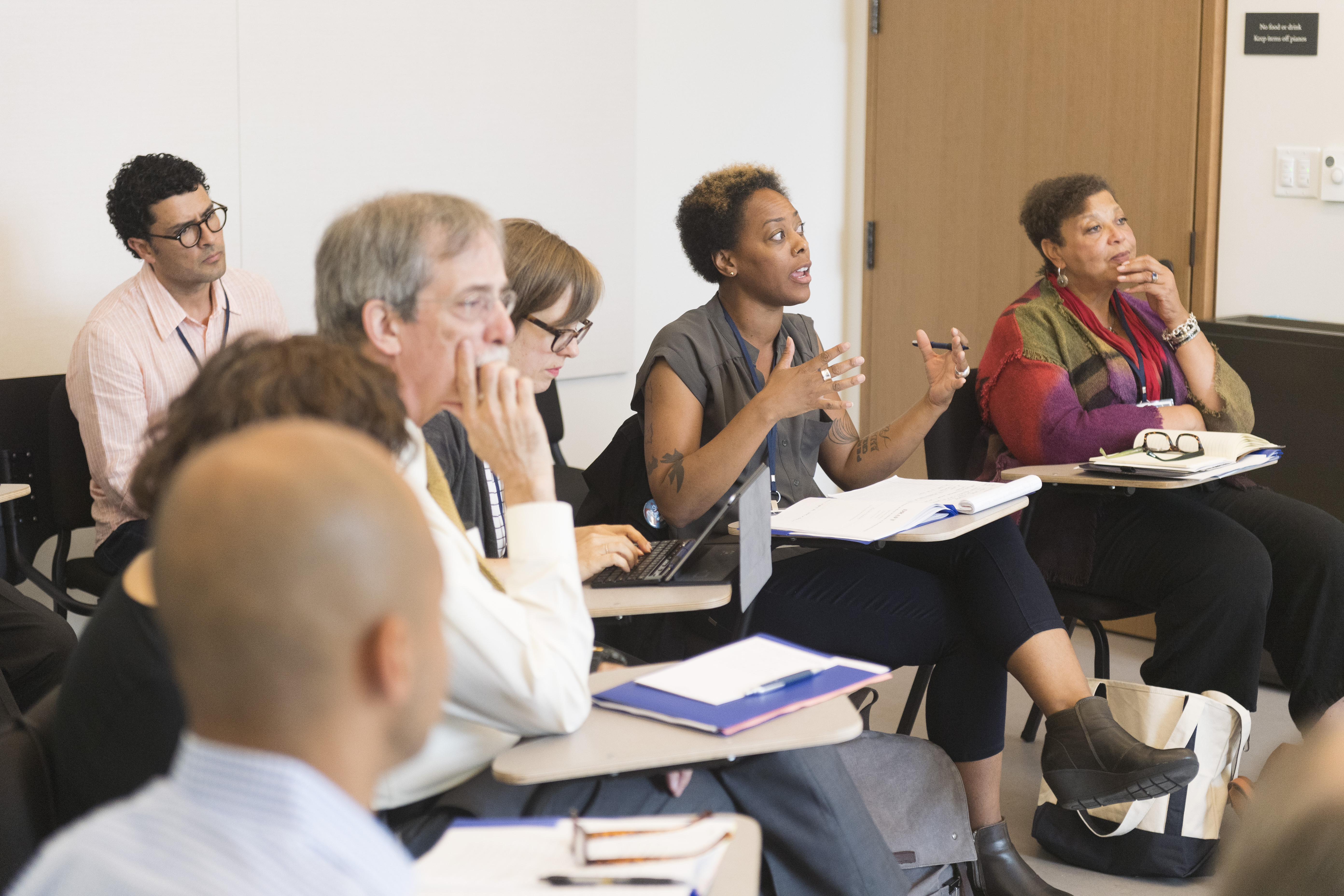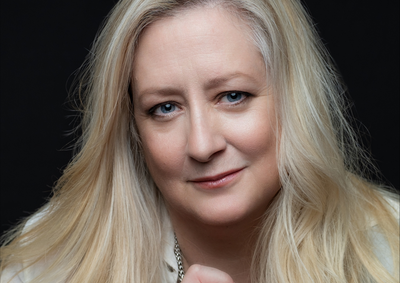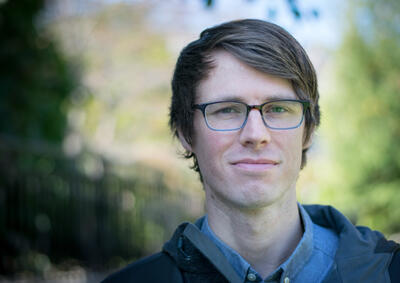Yale Hosts Sixth Symposium on Music in Schools
On June 15-17, the Yale School of Music hosted its sixth biennial Symposium on Music in Schools, an event at which 43 participants discussed "how to ensure that every child in every city in America has access to an active music life," YSM Associate Dean Michael Yaffe said. That topic is one that Yaffe and Rubén Rodríguez, the lead teacher in YSM's Music in Schools Initiative, have been thinking about for more than a year.
Among those invited to participate were public-school and university teachers and administrators, foundation leaders, music-education scholars, and public-policy experts who worked, Yaffe said, to "help us craft and complete a declaration about why music has the potential to change children's lives and have an impact on issues of exclusion." The purpose of the document, a draft of which was sent to participants ahead of the Symposium, is to "encourage the creation of ecosystems" that support the goal of guaranteeing children in city schools the same opportunities their suburban counterparts enjoy. The "gap" in quality public-school music education in the United States, Yaffe said, "is usually represented by city schools that don't have full-time certified music teachers" or music-specific activities.
Symposium participant Tarik Ward, the director of music programs at ELMA Philanthropies Services, talked about the "story of inequity," saying, "If you tell me your zip code, I can tell you your life story." To Ward, the Symposium and the declaration that's being crafted represent "an exercise in storytelling" about systemic inequity, and a chance to address "what we have to do" to bring about change. Music, Ward said, "is the cultural equalizer, the thing that everyone can do."
Lara Davis, the arts education manager at Seattle's Office of Arts & Culture, said the conversation about music education in city schools is part of a larger discussion about "the inequities that are running rampant across public education in this country," and that the gathering at Yale "is a step in the process."
"We have to have an intersectional lens as we approach this," and ask, "How does that inform the ways we talk about music?" Davis said. Mike Blakeslee, the executive director and CEO of the National Association for Music Education, said, "We've constructed a system where the self-interest of many constituencies is not social justice. You can tell the story," he said, but "the real question for me is, what are we going to do to make [change] really happen?"
In the coming months, Yaffe and Rodríguez, with YSM staff and input from Symposium participants, will finalize the declaration, launch a website, and identify organizations that will help disseminate the information. "We learned so much from this group of experts," Yaffe said. In essence, the 2017 Symposium on Music in Schools was the opening salvo in what will be an ongoing effort to address the inequity that plagues America. And while the Symposium itself was an important step toward bringing about real change, what follows, in terms of the resulting document, will be even more critical.
In addition to brainstorming and sharing ideas and perspectives during the three-day event, participants also honored their peers. As has been tradition since the first Symposium on Music in Schools in 2007, the 2017 iteration included the presentation of Distinguished Music Educator Awards to 10 public-school music teachers, all of whom work in city schools.
The impetus for the efforts undertaken at the Symposium was the work of YSM's Music in Schools Initiative, which was created in 2007 with an endowment from the Yale College Class of 1957. Rodríguez looks forward to a paradigm shift in terms of how we think about music in schools. "We are declaring that we are all equal and we all deserve the same opportunities and freedoms and services and access to the same spaces and opportunities to thrive," he said.







